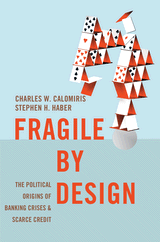In times of change learners inherit the earth, while the learned find themselves beautifully equipped to deal with a world that no longer exists–Eric Hoffer
Why the Fed is caught between its parabola of accelerating debt and money creation and debt collapse http://vimeo.com/102686694 (If short for time, start at the 18:30 minute mark).
Dan Oliver is a Director, Committee for Monetary Research and Education, one of the oldest and most respected organizations focused on our monetary system.
Some of the issues discussed were:
- Why has gold, when it was available, been the free-market preference for money worldwide for thousands of years?
- If gold is the preferred money, how come no country in the world uses it as money?
- Why does gold always move from spenders to savers, e.g., from the US to China?
- Goldsmiths/(banks) always issue more receipts for gold for which they do not have gold, sending all prices but gold higher. Reverse happens when the system collapses.
- Why, during a credit bubble, is gold always undervalued as compared to industrial commodities? What is the effect on gold producers?
- Why do politicians get corrupted by the bankers?
- Talk to how this plays out, especially the forcing abrogation of liberty
- What are the prospects for the relative valuation for gold and gold producers? What has to happen for these prospects to be realized?
- Where we are now: the money printed since 2008 is still mostly fallow, sitting in cash accounts.
- Can inflation occur in a stagnant economy or only when the economy “heats up”?
That interview of Dan Oliver of Myrmikan Capital provides a good synopsis of our (world’s) monetary crisis. Profit from the Deluge_CMRE_Remarks_2011_05_12 and Economic-Consequences-of-Cheap-Money_Mises
Another Dan Oliver interview on Bloomberg TV:
https://www.youtube.com/watch?v=VVvrSPn34kY
http://vimeo.com/102086456 Interview with Charles W. Calomiris who wrote Fragile by Design, the Political Origins of Banking Crises & Scarce Credit
(Csinvesting: This is an important, well-written book to understand why another banking crisis is inevitable plus you receive a history of U.S. and foreign banking systems.
Why are banking systems unstable in so many countries–but not in others? The United States has had twelve systemic banking crises since 1840, while Canada has had none. The banking systems of Mexico and Brazil have not only been crisis prone but have provided miniscule amounts of credit to business enterprises and households. Analyzing the political and banking history of the United Kingdom, the United States, Canada, Mexico, and Brazil through several centuries,Fragile by Design demonstrates that chronic banking crises and scarce credit are not accidents due to unforeseen circumstances. Rather, these fluctuations result from the complex bargains made between politicians, bankers, bank shareholders, depositors, debtors, and taxpayers. The well-being of banking systems depends on the abilities of political institutions to balance and limit how coalitions of these various groups influence government regulations.
Fragile by Design is a revealing exploration of the ways that politics inevitably intrudes into bank regulation. Charles Calomiris and Stephen Haber combine political history and economics to examine how coalitions of politicians, bankers, and other interest groups form, why some endure while others are undermined, and how they generate policies that determine who gets to be a banker, who has access to credit, and who pays for bank bailouts and rescues.
Charles W. Calomiris is the Henry Kaufman Professor of Financial Institutions at Columbia Business School and a professor at Columbia’s School of International and Public Affairs. His many books include U.S. Bank Deregulation in Historical Perspective. Stephen H. Haber is the A. A. and Jeanne Welch Milligan Professor in the School of Humanities and Sciences and the Peter and Helen Bing Senior Fellow at the Hoover Institution at Stanford University. His many books include The Politics of Property Rights.


